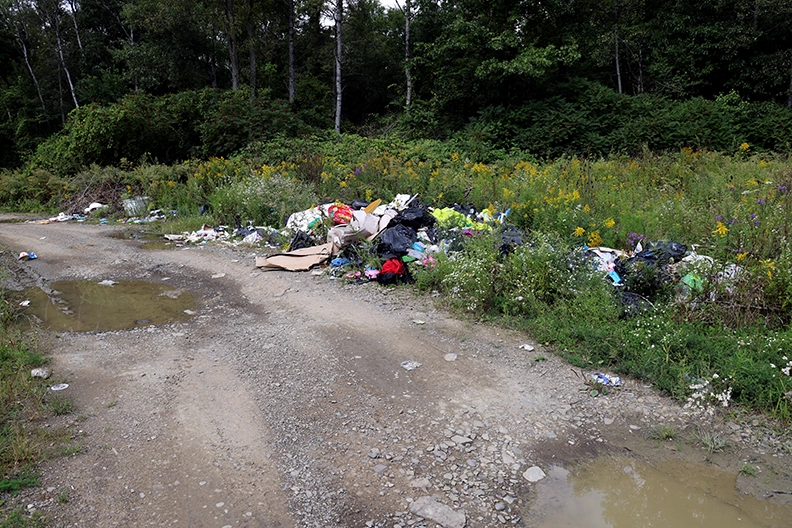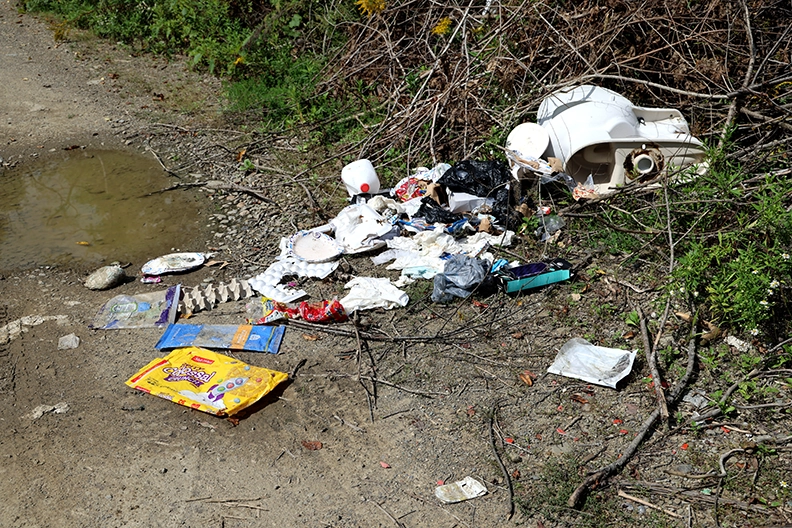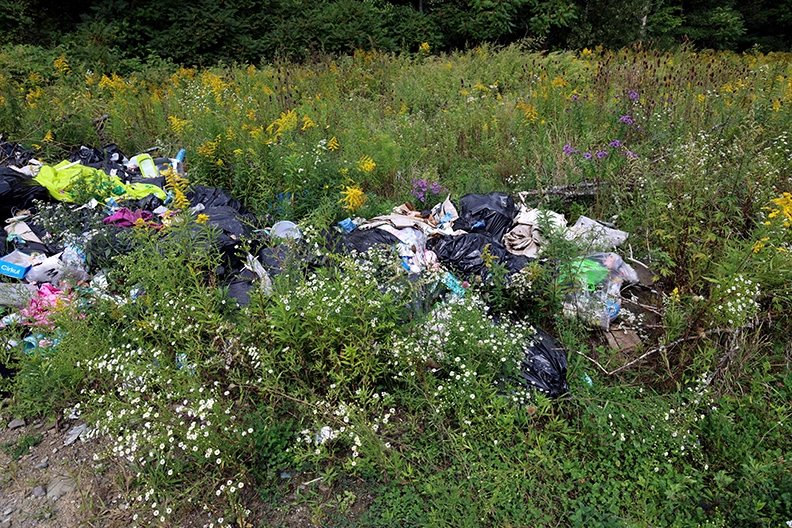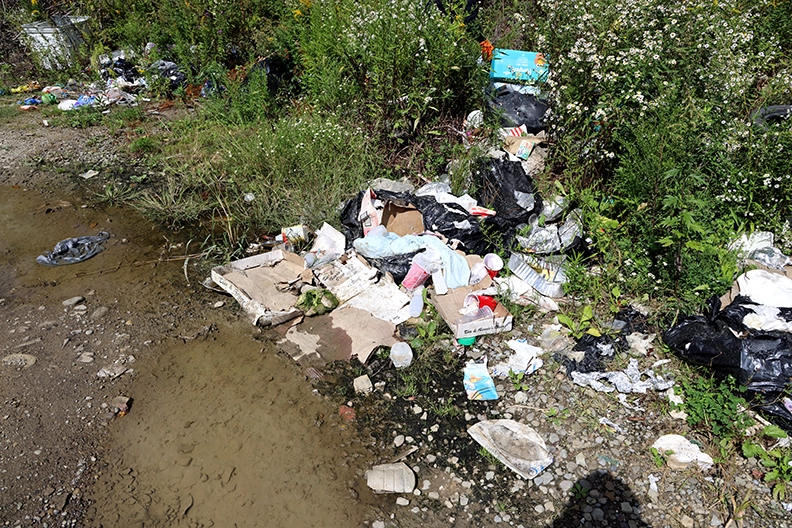All offenders will be prosecuted by Seneca Nation Peacemakers Court and/or through local authorities with jurisdiction
Recently, Game Wardens and Conservation Officers were alerted of a dumping site along Old Route 17.
Offenders were identified and written citations through the Seneca Nation Peacemakers Court System.
The Peacemakers Court would like to remind offenders that illegal dumping will be prosecuted and all Seneca Nation enrolled members that live on territory receive free garbage pick-up weekly. Please see the Clerk’s Office to receive trash tickets and information.
Seneca Nation Marshals, Conservation Officers, Game Wardens, and Environmental Protection Officers will continue to monitor dump sites on our territories and write tickets to offenders through the Peacemakers Court system and/or local authorities.
Please respect our territories for the next seven generations!
Effects of Illegal Dumping on the Environment
By Sara Popsecu Slavikova, Co-founder, Greentumble
When trash is littered in natural spaces, there are a variety of potential risks for the land and animals nearby. However, the scope of the impact is not always obvious and could take some time to present itself.
- Soil and Water Becomes Contaminated
When a mass amount of waste is in one place, there is a nearby risk to the soil and water. Unlike regulated sanitary landfills, which work to protect the surrounding area from contaminants, illegal dump sites do not have built-in systems and constant monitoring for environmental safety.
In an unmonitored, unregulated situation, runoff and hazardous waste can work its way into streams, rivers, lakes and drinking water. According to Slavikova, chemicals can seep into the soil and cause the ground to be infertile or even encourage the spread of invasive vegetation that are immune to the effect of the chemicals. It’s also possible for the chemicals to make their way into food supplies by entering vegetation.
Sara Popescu Slavikova, Co-founder | Greentumble shares “When exposed to the elements, waste usually starts to degrade. During this process, many unwanted chemicals and toxins that were previously bound together or to other molecules start leaching into the soil, are emitted into the air or washed off into water.”
- Wildlife Is Disrupted
Animals are not immune to the impact of illegal waste dumping. In fact, they tend to feel the impact first. The best-case scenario is that they are mildly inconvenienced by a pile of trash that blocks their travel path. Unfortunately, that’s not where the problems stop.
Smaller creatures may get ill after eating the trash or potentially become tangled in the debris, making them easy targets for predators. Should runoff or the trash itself make it to a water source, fish may experience depleted oxygen supply or ingest waste particles.
Trash also tends to attract wildlife that may not be native to that particular area. From mosquitoes to raccoons, this can lead to new diseases and predators entering the area, disrupting the natural flow of the ecosystem.
- Risk of Natural Disasters Increases
Garbage tends to be flammable. That’s because the various pieces of trash can mix, which may release combustible gasses.
If an illegal dump site is left unchecked, it increases the odds of a spontaneous fire that can grow and eventually become a full-fledged forest fire. Additionally, dumped trash can cause floods either by blocking the natural pathways of water or speeding up the process of erosion.
Effects of Illegal Dumping in Your Community
The environment isn’t the only victim of illegal dumping. If an unauthorized dump site appears in your neighborhood, you and your community can be impacted more than you might expect.
- Possibility of Health Issues Increase
One of the biggest risks illegal dumping poses to humans is illness. Sites where trash is just sitting out are a breeding ground for insects like mosquitoes and flies, but also for animals that carry diseases like rats, skunks and opossums.
A few of the life-threatening diseases these insects and animals can bring include dengue fever, yellow fever, encephalitis and malaria. Salvikova also notes that living in a community with visible dump sites could alter mental health. “Our mental health is affected by the cleanliness of the environment we live in,” Slavikova said. “Places known for illegal dumping are regarded as ‘dirty.’ People do not feel comfortable and safe around them.”
- Property Values Decrease
When it comes to urban or residential areas, some of the biggest issues come from people using a vacant lot as a dump or individuals deciding to leave bulk items at the curb when it’s not bulk trash day. While both are considered by many cities to be illegal dumping, the visual message it sends is where the damage is done. - Citizens Pay for Cleanup Costs
Nonprofit organizations often handle community cleanup efforts through charitable donations. You may not feel the financial burden of illegal dumping if you are lucky enough to have some quality environmental organizations that foot the bill.
If a nonprofit isn’t tackling the issue, the local government has to step in and allocate funds for these projects. For example, Kansas City has $2 million written into its budget — paid for by the taxpayers — for illegal dumping cleanup. While most dump sites are simple enough to clean up if it’s household junk and bags of trash, the financial impact really comes from areas that have household hazardous waste leaking into the environment.








